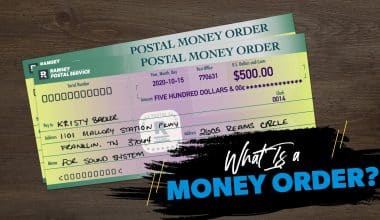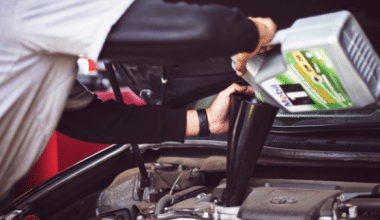Usually, buying a new car is an exciting event. But, there are times when it could be a little worrying to try to decide whether the car you have your heart set on is worth the money you’ll be spending on it, so as a result, you could be looking for advice on used car purchases. Here, we provide you with some tips and guidelines for buying a used car, as well as tips for buying a used car from both a dealer and a private seller.
Tips for Buying a Used Car
Private sellers or dealers buying old cars is not always straightforward. As a result, we’ve offered advice and tips on how to buy the ideal used car of your choice. When buying a used car on your own, through a dealer, or online, there are tips to minimize the risk involved. Nevertheless, if you do your research, are aware of your rights as a buyer, and know what to look for, you might be able to save a sizable amount of money and steer clear of unpleasant surprises in the future.
When choosing and inspecting that secondhand motor, bear the following recommendations in mind:
#1. Establish Your Finances First.
While buying a car is an expensive purchase, you must first create and stick to a budget. If necessary, take into account your available financing options for your vehicle, such as personal loans, auto loans, and cash payments. After deciding how much you can put down, calculate your ability to make monthly payments. If you take these actions, you won’t appear perplexed when the salesperson asks, “How much have you got to spend each month?”
#2. Maintain Vigilance on Used car Market Pricing
If you’re shopping for a used car, browsing websites online is a great way to see what’s available and what you can afford. You won’t feel pressured to buy a car if you don’t think it’s quite the right one for you because there are so many options available. Also, because there are so many options, you can determine whether or not you’re paying too much. If you’re looking at popular models, there will always be a tonne of samples available if the pricing isn’t right.
#3. Take a Close Look at Each and Every Document.
There is no use placing any importance on the mountain of paperwork that comes with a used car if you aren’t going to check it out. If you are buying from an individual rather than a dealer, be sure the authorized keeper is actually selling the vehicle from the location mentioned in the V5C logbook by comparing the logbook registration and chassis numbers to those on the actual car.
Then you may check for any irregularities in the service history, determine whether the cambelt needs to be replaced (this can be a costly job on some cars), analyze the sales documents to show ownership and the termination of any loan agreements, and so forth. An HPI check can be used to discover any unpaid invoices or hidden histories.
#4. Examine the Car Carefully When the Weather and Daylight Are Favourable
When the weather is favorable, check cars as much as you can, and pay special attention to them in the daylight since rain on painted surfaces, streetlamps, or torchlight can hide a lot of mistakes. Inspect all interior trim surfaces and each panel in detail. Older cars are more likely to get the occasional scratch, so it’s crucial to make sure all the switchgear and attachments are working. Do the electric windows all open at the same speed and does the air conditioning blow cold?
#5. Take a Prolonged Test Drive.
Make sure the vehicle performs, drives, and behaves as you would expect. Is it easy to start the vehicle? Are there any weird noises coming from the engine or brakes? When rotating, is there a sideways pull? Is there any visible smoke coming from the exhaust? Before doing a test drive, be sure your insurance is up to date.
#6. Is Everything There?
Check that the trunk floor, tools, locking alloy wheel nuts, spare tyre, repair kit, original jack, and spare tyre are all present. Check the glove box for the car’s owner’s manual after asking whether there are any extra keys. Moreover, some vehicles may need SD cards or sat-nav discs. It would be disappointing if any of them went missing because they are all expensive to replace.
#7. Finalizing the Deal
When you have a price agreement and want to buy an automobile, make sure all agreements are made in writing with a receipt that both parties may sign and save a copy of. The details of the car, the agreement’s conditions, the price, and the parties’ names and addresses should all be included.
Read Also: Why Should You Invest in Steel Garage Kits?
Tips for Buying a Used Car From a Dealer
here are tips for buying a pre-owned car from a dealer, independent retailer, or driveway trader
A dealer or trader is a great place to start if you’re anxious about buying a used car so following these few tips will help you make the right choice.
#1. As There Are Numerous Various Ways to Interpret the Term “Trader,” Let’s First Define It.
Those that engage in behavior related to their trade, business, craft, or profession are referred to as traders. This includes everyone, from a lone individual purchasing and selling cars on their driveway to a franchised dealer selling brand-new and nearly-new automobiles.
Each of these retailers provides a different level of pre-and post-sale assistance, as well as varying prices for these advantages. Despite having more resources, a larger business will charge more because of its higher overhead expenses.
The largest franchised dealers are found at one end of the scale, one-man-band driveway traders are found at the other, and independent garages are frequently found in the middle.
#2. Something to Think About
A main dealer or garage will likely have thoroughly inspected a pre-owned vehicle and provide a trustworthy warranty (usually six or 12 months).
While doing so may increase the overall cost of purchasing the automobile, it might give you the priceless assurance that the vehicle has undergone a rigorous inspection and is backed by a warranty.
Yet, buying a car from a driveway trader may turn out to be a false economy since you may have to pay extra for upkeep. Keep in mind that it’s probable the owner of the car did not do much more than give it a quick wash after purchasing it at an auction.
Although all sellers are required to abide by the Consumer Rights Act, which gives you the right to a repair, replacement, or refund if the car isn’t deemed to be “fit for purpose” or “of satisfactory quality,” it could be difficult to exercise this right if the seller is dishonest.
Despite the fact that you typically have only 30 days to reject the vehicle and request a complete refund due to a problem and that your rights after this period change, you might still need to take action quickly.
You can learn more about this in our buyer’s rights section. It is also important to keep in mind that, in accordance with the provisions of the Road Traffic Act of 1988, nobody is permitted to sell a motor vehicle or trailer that is not in operational condition.
#3. How to Choose
Take into account the characteristics you want and the requirements for your car.
If the automobile is an investment—say, if it will serve as your family’s vehicle for the next 10 years—paying for the security you get from a garage may make sense.
If the upfront cost is your only consideration and the automobile is perhaps an in-between runabout for £500, skipping the warranties in favor of the lowest price may make sense.
The medium market for car purchases—cars that are too old for main dealers but aren’t really bargain bins—is commonly served by independent auto shops, which come in a variety of sizes (and levels of excellence).
Independent garages have the advantage that they often care about their reputation; an online search may indicate how satisfied past clients were with them.
But, proceed with caution as some dealers might not have done anything to get their cars ready for sale. If they offer a guarantee, read the terms and conditions carefully because sometimes they aren’t worth the paper they are printed on.
Tips for Buying a Used Car From a Private Seller
It’s not necessary to feel anxious when buying a used car, from a private seller easy tips will keep the purchase joyful and stress-free.
Buying a used car from a private seller can be far less expensive than going to a dealer if you have a tight budget, considering these tips will help you know whether it is the best option.
Advantages
- When used cars are sold privately as opposed to at a dealership, the price is typically substantially lower and there is frequently more space for negotiation because the seller isn’t trying to make a profit.
- When buying a car privately, you have the chance to speak with the former owner and discover more about how well they maintained it. For instance, it has likely been well-maintained over its whole life if it is clean and just has a few minor bodywork issues. It is more difficult to determine how well-maintained a car has been because most dealers have a professional valet clean all of their vehicles.
- You have the chance to talk to the former owner and learn more about their reasons for selling the vehicle. Are they genuinely attempting to get rid of a bad car, or do they actually have a legitimate reason?
Disadvantage
- Some car sellers overvalue their cars, and it’s not uncommon to see people who are asking for prices for their cherished possessions that are comparable to what they might make at a dealership. These merchants typically lower their prices, but it could take some time.
- You will need to be considerably more careful about the checks you do when you inspect and test drive a privately sold car because they won’t have had the same extensive vehicle health assessment as those sold at a dealership. If you still decide to buy privately, don’t worry—our viewing the car section includes all the details you need.
- Keep in mind that buying privately gives you less buyer’s protections than buying through a dealer, so you might not be able to get a refund if the car breaks down on the way home.
What are 7 Tips for Buying a Used Car?
- 1 Before you start searching, determine what you need.
- 2. Choose between working with a dealer and an independent seller.
- 3. SAMPLE DRIVE
- 4 ACTIVATE RESEARCH
- 5. VERIFY THE MILES
- 6. Inquire about any accident or service history.
- 7 Don’t accept the first offer’s price.
Do and Don’ts of buying a car?
- Do: Research Your Buying.
- Don’t: Go to a Dealership Without Already Having a Finance Offer.
- Do: Consult your insurance agent before making a purchase.
- Don’t: Claim You’ll Pay Cash Right Now to Start the Discussion.
- Do: Recognize Your Credit Score and Budget.
- Do not focus just on the payment.
- Do: Divide the transaction up into its component parts.
- Avoid only shopping at one retailer.
- Act: Go for a Test Drive
- Take the car home only once all the paperwork is completed.
- Do: Carry a Calculator
- Don’t: Sign Documents That Isn’t What You Agreed To
- Do: Be Prepared to Walk Away
- Don’t: Give in to pressure to purchase pricey add-ons
- Do: Search for Discounts
- Don’t: Bring your children to the finance department.
- Do: Verify that the payment has been made with your lender.
- Keep in mind that it is only a business transaction.
What is the First Thing you Should do After Buying a Used Car?
Hire a Reliable Mechanic and allow them to spot and resolve minor problems. They ought to immediately address any minor problems they see.
What Questions Should you ask When Buying a Second-Hand Car?
- What is the reason for the car sale?
- When was the car made?
- How many miles are there?
- How long has the car been theirs?
- How many owners came before?
- Is the car still under warranty or are they selling it as-is?
- What issues are present, and what fixes are required?
What are 5 Signs You Shouldn’t Buy a Used Car?
- Absence of repair records.
- Clearly Visible Symptoms of Neglect and Abuse
- Proof of Mechanical Band-Aids in Recent Times.
- High-Performance Automobiles.
- those who smoke.
- Transmission fluid and oil.
- Coolant, accident damage, etc
- How old is the owner
How Can I Avoid Paying Too Much for a Car?
You must understand that there will be other vehicles similar to the one you are interested in. You must be prepared to end the process at any point. Conduct your research, determine what a reasonable price is, demand a paid independent third-party examination, and then present a fair price. Moreover, be prepared to leave if you feel pressured or simply do not want to continue. Before signing on the dotted line to actually acquire the automobile, double- and triple-check everything you sign, including the invoice.






